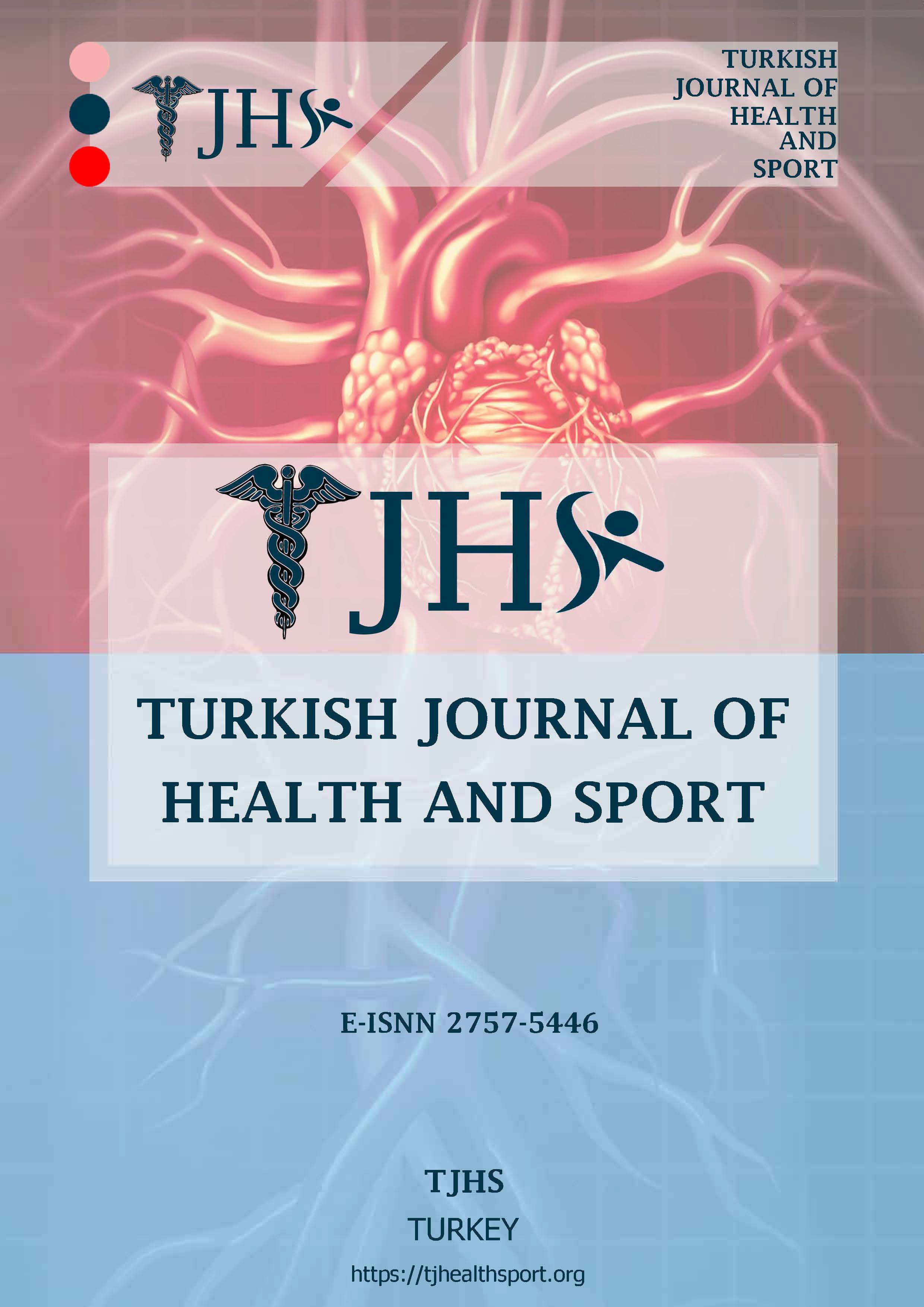Author :
Abstract
Amaç: Dünya çapında çok sayıda insan hala COVID-19 sürecinden etkilenmektedir. Pandeminin yüksek
yayılma hızı ve ölüm sayısı, hastalığın davranışını/seyrini anlamayı her zamankinden daha önemli hale
getirmektedir. Bu çalışmada, uygulanan sağlık politikalarının COVID-19 sürecine etkileri incelenmiştir.
Materyal ve Metod: Türkiye’de virüsün ortaya çıktığı 10.03.2020 ile 30.06.2021 tarihleri arasındaki süreçte
uygulanan sağlık politikalarının COVID-19 sürecine etkisinin araştırılması için ilgili yönetim organları
tarafından çıkarılan genelge ve resmi yazılar ile Worldometer ve Our World In Data internet sitesi kullanılmıştır.
Söz konusu politikaların uygulanmaması durumunda karşılaşılabilecek tabloya ilişkin modellemeler en küçük
kareler yöntemi kullanılarak grafiğe dönüştürülmüştür.
Bulgular: Alınan önlemlerin 12-15 gün gecikmeli olarak olumlu etkilerinin olduğu gözlemlenmektedir.
Covid-19 sürecine yönelik benimsenen politikaların vaka ve ölüm sayılarının azalmasında etkili olduğu
görülmektedir. Bazı kısıtlamaların kaldırılmasıyla vaka sayılarında artışlar olmakla birlikte, sonuç olarak,
Türkiye’nin durumunun toplam vaka ve ölüm oranları bakımından bazı Avrupa ülkeleri ile komşu ülkelere
göre daha olumlu olduğu tespit edilmiştir.
Sonuç: Sonuçlar, Türkiye’nin koronavirüs hastalığını yenmek için oldukça disiplinli ve başarılı bir sağlık
politikasına sahip olduğunu göstermektedir.
Keywords
Abstract
Aim: Many people around the world are still affected by coronavirus (COVID-19) disease. The high spread
rate of the COVID-19 and the number of deaths make it more important than ever to understand the behavior
of the disease. In this work, the effects of health policies on the COVID-19 process is examined by taking into
account various data.
Material and Methods: Official articles, circulars issued by decision makers, Worldometer and Our World in
Data websites are used to study the effects of the health policies on the COVID-19 process from 10.03.2020
to 30.06.2021. The scenario in which the appropriate precautions were not taken by decision makers is also
considered by simulating data with the method of least squares.
Results: It has been determined that the measures taken have positive effects with a delay of 12-15 days. We
observe that the policies adopted for the COVID-19 process are effective in reducing the number of cases and
deaths. We note that there were increases in the number of cases after the removal of some measures. Overall,
Turkey’s situation in terms of total case and mortality rates in COVID-19 process is better than the average of
some European and neighboring countries.
Conclusion: The results shows that Turkey has quite disciplined and successful health policy to overcome
coronavirus disease.
Keywords
- 1. WHO, «World Health Organization,» 2020b. [Çevrimiçi]. Available: Retrieved from “https://www.who.int/ director general/speeches/detail/who-director-general-s-opening-remarks-at-the-media-briefing-on-covid19”.
- 2. WHO, «World Health Organization,» 2020a. [Çevrimiçi]. Available: Retrieved from “https://www.who.int/ news/item/30-01-2020-statement-on-the-second-meeting-of-the-international-health-regulations-(2005)emergency-committee-regarding-the-outbreak-of-novel-coronavirus-(2019-ncov)”.
- 3. A. L. Bertozzi, E. Franco, G. Mohler, B. M. Short and D. Sledge, “The challenges of modeling and forecasting the spread of COVID-19.,” Proceedings of the National Academy of Sciences, vol. 117, no. 29, pp. 1673216738., 2020.
- 4. Z. Cakir ve H. B. Savas, «A Mathematical Modelling Approach in the Spread of the Novel 2019 Coronavirus SARS-CoV-2 (COVID-19) Pandemic.,» no. 17, 2020.
- 5. Z. Cakir ve H. B. Savas, «A mathematical modelling for the COVID-19 pandemic in Iran,» Ortadoğu Tıp Dergisi, cilt 12, no. 2, pp. 206-210, 2020a.
- 6. O. Bargain and U. Aminjonov, “Trust and compliance to public health policies in times of COVID-19.,” Journal of Public Economics, vol. 192: 104316, 2020.
- 7. T. Hale, N. Angrist, R. Goldszmidt, B. Kira, A. Petherick, T. Philips, ... and H. Tatlow, “A global panel database of pandemic policies (Oxford COVID-19 Government Response Tracker).,” Nature Human Behaviour, vol. 5, no. 4, pp. 529-538, 2021.
- 8. H. Duran, «Devletlerin koronavirüsle karşılaştırmalı mücadele stratejileri.,» SETA Yayınları, 2020.
- 9. A. Turan ve H. H. Çelikyay, «Türkiye’de KOVİD-19 ile mücadele: politikalar ve aktörler.,» Uluslararası Yönetim Akademisi Dergisi, cilt 3, no. 1, pp. 1-25, 2020.
- 10. A. Ward, «Sweden’s government has tried a risky coronavirus strategy. It could backfire.,» Vox, 2020.
- 11. H. Ritchie, E. Mathieu, L. Rodés-Guirao, C. Appel, C. Giattino, E. Ortiz-Ospina, J. Hasell, B. Macdonald, D. Beltekian and M. Roser, “Coronavirus Pandemic (COVID-19),” 2020. [Online]. Available: Retrieved from ‘https://ourworldindata.org/coronavirus’ [Online Resource].
- 12. Worldometer, «Worldometer,» 2020. [Çevrimiçi]. Available: Retrieved from “https://www.worldometers.info/ coronavirus/”.
- 13. E. Suli ve F. D. Mayers, An introduction to numerical analysis, Cambridge university press, 2003.





